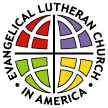Pastor John's Daily Briefing-6/29/2020
Pastor John's Daily Briefing-6/29/2020
To all the faithful in Christ Jesus, Grace and peace to you.
When the Apostle Paul set out to write his letter to the church in Ephesus, a community of faith represented by both Jewish and Gentile Christians, he was addressing a people, from both sides, who had understood what it had meant to be divided across religious and ethnic lines, to live in a world where a focus was on perceived differences, differences that led some to believe that these same some were in a better position before God as well as access to the benefits of society. Still others, by way of both law and societal norms and preferences, were prevented from access to these same benefits; as a result, their cries and concerns often went unheard.
Paul wants to assure the church in Ephesus that a debilitating focus on our differences and their attending results, often leading some to being discriminated against through the generations, is now addressed permanently by God's actions in Christ, beneficial to and for all people. For Paul and the Ephesian Church, the divide of Jew and Gentile is to be discontinued in and through the immeasurable grace and love of God revealed in the life, death, and resurrection of Christ Jesus. Christ is the authority that breaks down the hostility that grows out of ethnic and religious division.
Paul accents this understanding by making it clear that all of us "were dead through the trespasses and sins in which you once lived, following the course of this world" (2:1). But God does not leave us there in our sin and the collective consequences even as "all of us once lived among the passions of our flesh, following the desires of flesh and senses... by nature children of wrath" (2:3). In Christ, God addressed permanently the ugly divide that sought to keep people separated and divided along ethnic and religious lines. "God, who is rich in mercy, out of the great love with which he loved us even when we were dead through our trespasses, made US ALIVE TOGETHER WITH CHRIST" (2:4).
Paul continues, "But now in Christ Jesus you who were once far off have been brought near by the blood of Christ. For HE IS OUR PEACE; in his flesh he has made both groups into one and has broken down the dividing wall, that is, the hostility between us... that he might create in himself one new humanity in place of the two, thus making peace, and might reconcile both groups to God in one body through the cross, thus putting to death that hostility through it" (2:13-16). Hear that! Christ has broken down the dividing wall, the hostility between us.
Hopefully, the Apostle Paul's words to the Ephesian Church will have some impact on what is happening in our time and place, in a world of increasing divide and hostility, much perpetuated by a belief and its brusk rhetoric that accentuates worth along particular lines of ethnicity, religion, gender, and geography. Should we not ask how Christ sees us, particularly from the perspective of the cross by which he has broken down the dividing walls of hostility?
Hope and healing will only happen in and by Christ's help, "for he came and proclaimed peace " to the far off and the near (2:17), "for through him, all of us have access in one Spirit" (2:18). We are all heirs and sharers in the promise in Christ Jesus (3:6). In the Ephesian Church, Paul made it clear that it was to be a church and a community that welcomes and receives both Jew and Gentile. Will our communities and communities of faith live out that same hope and promise where there will be no dividing walls of hostility?
God grant us grace and mercy! Pastor John
